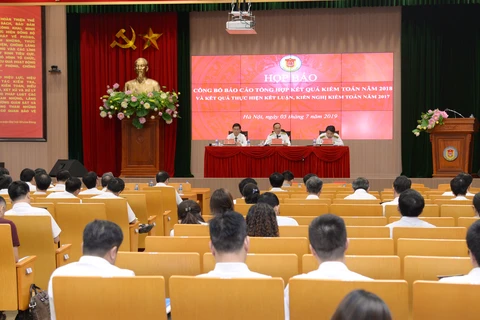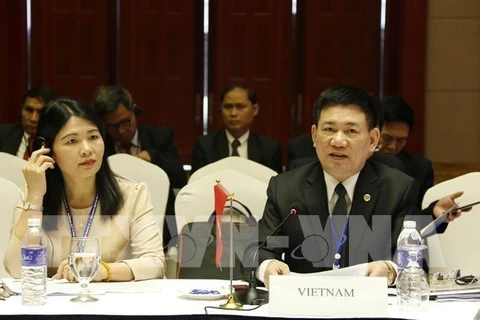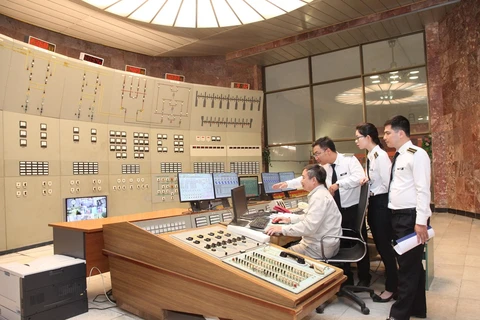Hanoi (VNA) – With new revisions and supplements to the Law on State Audit, the State Audit of Vietnam (SAV) is expected to greatly help to improve the transparency, efficiency, and effectiveness in the management and use of public finance and assets and the corruption fight.
During the three years of implementing the 2015 Law on State Audit, the SAV proposed fines of more than 240 trillion VND (nearly 10.4 billion USD at the current exchange rate); amendments, replacement, or abolition of hundreds of legal documents; and settlement of tens of collectives and individuals committing violations.
With its achievements, the SAV helped to promote the transparency, efficiency, and effectiveness in the management and use of public finance and assets and the corruption fight.
However, new requirements during the course of “doi moi” (renewal), especially amid the Fourth Industrial Revolution, and international integration make it necessary to further improve the capacity, efficiency, and effectiveness of the SAV’s activities. Besides, after more than three years of enforcement, some problems emerged in the implementation of the Law on State Audit, which needs to be revised and supplemented in a timely manner.
The SAV built and submitted the new law, No 55/2019/QH14 dated November 26, 2019, which amends and supplements some articles of the 2015 Law on State Audit to the National Assembly for approval. This new legislation took effect on July 1, 2020.
The law on amendments and supplements to some articles of the 2015 Law on State Audit has helped perfect the legal system on State audit, enhance the efficiency and effectiveness of the SAV’s activities, and improve the monitoring of public finance and assets as well as the corruption prevention and control.
In particular, it gives the SAV the right to examine the management and use of public finance and asset at agencies, organisations, and businesses related to audit activities. This matches the principle that audits are carried out wherever there are public finance and assets so as to ensure that public finance and assets are managed and used in line with laws and in an effective manner and to prevent the wastefulness of the State’s resources.
To raise the quality of audits, the new law also provides the SAV with the right to access the national database and electronic data of units subject to audits, as well as agencies, organisations, and individuals linked with audit activities, to collect information and documents directly related to the content and scope of audits.
The provision of the access right to the SAV is necessary to serve audit activities, and it also matches the era of information technology and the trend of the Fourth Industrial Revolution.
The new legislation also stipulates that the SAV must be responsible for guaranteeing information security and safety in line with relevant regulations while accessing and collecting information and data.
The application of information technology to auditing activities believed to help save labour, shorten the duration of direct audit activities, and improve audits’ efficiency.
In addition, to deal with organisations and individuals delaying the provision of or providing insufficient information and documents needed for audits, the new law also supplements the right to deal with administrative violations relating to auditing activities to the SAV.
To help with corruption prevention and control, the law amending and supplementing some articles of the Law on State Audit expands the jurisdiction of the Auditor General in issuing procedures for auditing cases showing signs of corruption.
It is also added with regulations on the coordination responsibility of inspection agencies and the SAV in order to boost the efficiency of their coordination and prevent the overlap between inspection and auditing activities.
With such amendments and supplements, the law revising and supplementing some articles of the 2015 Law on State Audit has created an important legal basis for improving the SAV’s activities, and they are expected to help promote the effectiveness of the public finance and asset monitoring and the corruption combat in the time ahead./.

























